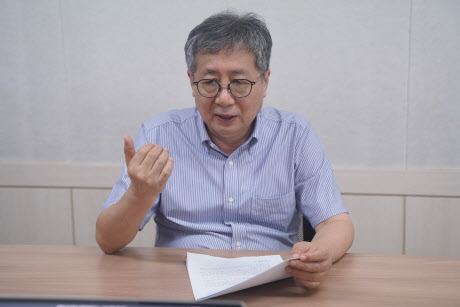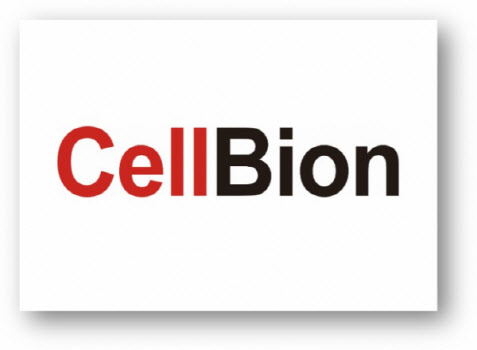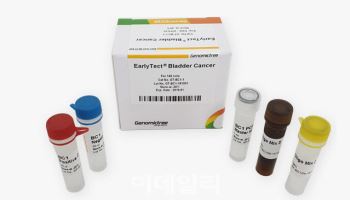Unauthorized reproduction or distribution is illegal and subject to criminal penalties.
Pharm Edaily enforces a zero-tolerance policy and will take strict action.
[Yu Jin-hee, Edaily Reporter] SEOUL, South Korea- “Yuhan’s Lazertinib succeeded in the competitive NSCLC market through a tailored combination therapy strategy backed by a strong global partnership. We will replicate that success by positioning Korea’s first radiopharmaceutical new drug on the global stage with a similar approach.” said Kwon Kim, CEO of Sellbion, in an interview with Edaily on July 14.
Kim added, “Not only are we confident, but Merck (MSD) is also highly optimistic about the potential synergy between our respective key drug candidates.”
Sellbion has applied for a domestic Phase 1 clinical trial of its proprietary radiopharmaceutical 177Lu-DGUL in combination with MSD’s immune checkpoint inhibitor Keytruda (pembrolizumab). The application comes as Sellbion gears up to unveil the Phase 2 topline results for 177Lu-DGUL - a move setting the stage for global market entry. Kim’s remarks underscore his confidence in the drug’s Phase 2 outcomes.
 | | Kwon Kim, CEO of Sellbion. (Photo provided by Sellbion) |
|
Phase 2 Topline Results Expected by Q3 “We’ve completed dosing of all 91 late-stage prostate cancer patients in the Phase 2 trial of 177Lu-DGUL, and are currently analyzing its efficacy and safety. We expect to announce topline data in the third quarter and aim to file for conditional approval within the year,” Kim stated.
Developed under Korea’s National New Drug Development Project, 177Lu-DGUL was designated an orphan drug by the Ministry of Food and Drug Safety (MFDS) in 2021 and recognized as a Global Innovative Fast Track (GIFT) product in 2023. Pending favorable Phase 2 results, Sellbion targets domestic launch by the first half of next year, estimating KRW 37 billion (approx. USD 27 million) in domestic sales by 2026.
“With commercial readiness in sight, we’re now actively discussing licensing deals and monetization strategies, MSD’s participation in clinical trials is part of this broader roadmap, and both companies are optimistic about the trial’s prospects,” Kim added.
MSD has reportedly validated the combination potential of Keytruda with radiotherapy through investigator-initiated studies, including trials with Novartis’ radiopharmaceutical Pluvicto (177Lu-PSMA-617).
A Phase 1 trial of Keytruda plus single-dose Pluvicto demonstrated a 56% objective response rate (ORR), 6.9 months median progression-free survival (mPFS), and 28.2 months median overall survival (mOS) with no new safety concerns.
“Keytruda, with $29.5 billion in sales last year accounting for 46% of MSD’s total revenue is the world’s best-selling cancer drug with approvals across 20+ indications, including gastric, esophageal, and triple-negative breast cancers. Yet, it has consistently failed in prostate cancer trials, prompting MSD to explore radiopharmaceutical combinations as a breakthrough strategy,” Kim explained.
“Given that MSD cannot work with its competitor Novartis and considering Pluvicto’s superior efficacy and safety, our partnership with MSD holds strong potential for maximizing both companies’ flagship products,” he added.
 | | (Photo provided by Sellbion |
|
Multi-Billion-Dollar Market Potential Prostate cancer ranks as the fourth most common cancer globally, with 1.5 million new cases annually (7.3% of all cancers), following lung (12.4%), breast (11.6%), and colorectal cancers (9.6%), according to the International Agency for Research on Cancer.
Market research firm Global Information projects the prostate cancer therapeutics market will expand from $14.8 billion in 2022 to $28.4 billion by 2030.
Novartis’ Pluvicto, approved by the FDA in 2022, generated $980 million in sales in 2023.
Industry watchers believe that should MSD and Sellbion prove the efficacy of Keytruda + 177Lu-DGUL combination therapy, their potential commercial returns could easily surpass the billion-dollar mark.
“Although the joint trial with MSD is still in its early stages, preclinical studies have already yielded encouraging results,” Kim noted.
“The key lies in ‘177Lu-DGUL’s ability to convert ‘cold tumors’-like prostate cancer-into ‘hot tumors,’ thereby enhancing the efficacy of immune checkpoint inhibitors.”
Cold tumors, such as prostate and ovarian cancers, lack immune cell infiltration and often resist immunotherapy. In contrast, hot tumors, like melanoma, NSCLC, and bladder cancer, are rich in immune cells and respond better to immunotherapy.
Sellbion plans to pursue differentiated regional strategies worldwide rather than relying solely on MSD. The company also aims to accelerate pipeline expansion by entering clinical trials for additional solid tumor therapies.
“We’re in talks with other global pharma and biotech companies for licensing and joint clinical trials. These discussions are expected to crystallize around the time 177Lu-DGUL reaches commercialization,” Kim said.
“This approach will allow us to diversify our partnerships and advance our pipeline development in parallel.”




![Jeil Bio’s 29,000% Jump an Illusion...ImmuneOncia Slides on Capital Raise[K-Bio Pulse]](https://image.edaily.co.kr/images/vision/files/NP/S/2026/02/PS26021000254b.jpg)






![인도, 글로벌 저가 제네릭에서 바이오 허브로 탈바꿈[제약·바이오 해외토픽]](https://image.edaily.co.kr/images/vision/files/NP/S/2026/02/PS26020700379b.jpg)